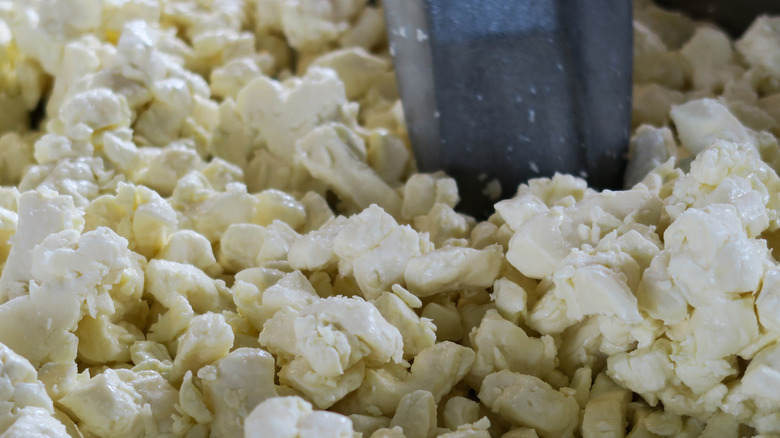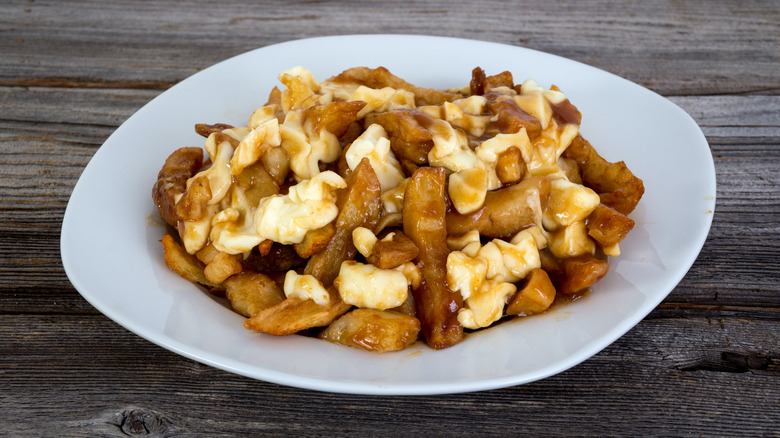Here's Why Cheese Curds Squeak
The first time you eat really good poutine, you'll know it as soon as you take the first bite. Or more specifically, you'll hear it. As important as the french fries and gravy components are in poutine, according to Serious Eats, it's the cheese curds that make or break the dish. Whether you're putting them on poutine or frying them up Wisconsin-style, the best indicator of high-quality cheese curds is whether or not they make a squeaking noise when you bite into them.
But where does that sound come from? Allrecipes explains that it's a product of the curd-forming process. When the calcium and protein from the cheese curds come in contact with tooth enamel, it results in a squeaky sound when you chew. Serious Eats adds that the pH of the cheese is at play as well. The lower the pH levels, the less squeaky the curds are.
What does it mean when cheese curds aren't squeaky?
Cheese curds that aren't squeaky aren't necessarily cheese curds that were made improperly. Cheese curds stay squeaky for an average of only three to five days, so if they aren't squeaky, chances are they're just no longer fresh. There are also some types of cheese, such as cheddar, that don't stay squeaky as long as others do. It is possible, however, to get the squeaky quality back once it's lost. Less than five seconds in the microwave is all it takes, per the Dairy Farmers of Wisconsin.
Cheese curds with no squeak in some cases can unfortunately be an indicator of deceptive packaging. Allrecipes shares that cheddar cheese that's cut up into curd-shaped pieces is often inauthentically sold as cheese curds. This may seem like a minor difference, but the fact is that cheese curds and cheese are not the same. Cheese is aged, but cheese curds aren't, and most importantly, cheese curds should always squeak.

